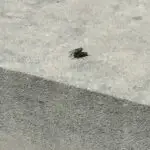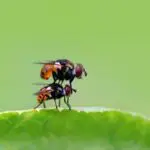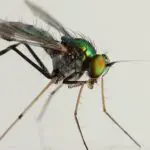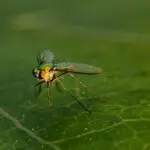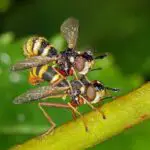How Do Flies Make Babies?
Flies make babies through the egg-laying process. The female flies lay around 75-150 eggs during their lifetime. The eggs are laid on decomposing organic matter and will hatch into larvae within 24 hours. The eggs are white like rice, about 1.2 mm in size. Unlike many insects, flies do not require parental care.
Adult flies live for approximately fifteen to twenty days, but may live longer. Food is essential during this time, as flies cannot survive for longer than a week without food. When the temperature is warm enough, at least one generation of flies is produced each month. Female flies need proteins and can’t obtain them from manure.
The flies also need a safe place to lay their eggs. They are very picky about where they lay their eggs, as they want as many of their offspring as possible to survive. Hence, they prefer places with abundant food sources and protective spaces. If these conditions are not present, flies will have to risk being eaten by hungry birds and frogs.
In most cases, animals have smaller offspring than their parents, with the exception of tsetse flies, which can weigh up to six times their mother’s pre-pregnancy weight. This is an extreme reproductive strategy, and is the subject of a recent paper in the journal BioEssays.



